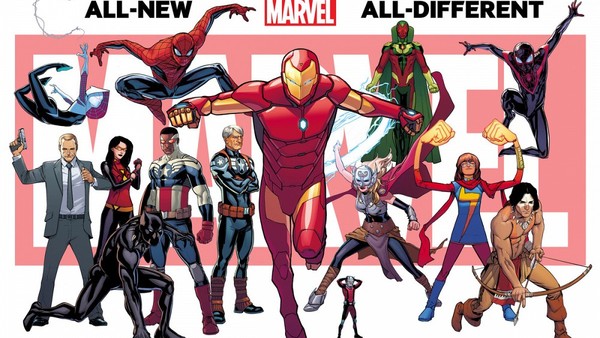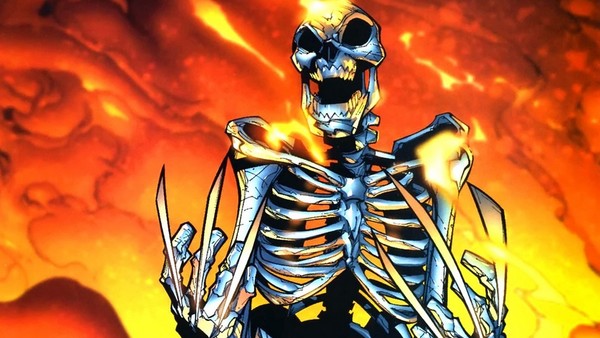5 Bad Habits Superhero Comics Should Break
It’s time both Marvel and DC received an intervention.

To a lot of people, superheroes and comic books are synonymous. When people throw up their hands and say “That’s just comics!” they’re referring to the strange, often counterintuitive conventions of the superhero genre rather than comics as a whole. Someone who just reads Saga or Wicked + Divine and never dives into the output of Marvel and DC will have no frame of reference regarding the frustrations of ignored continuity, the fatigue of constant events, or the headaches of new first issues and reboots. Readers who stick mainly to indie books don’t know the pains of following superheroes, but for many of us the struggle is very real.
Superhero books have always had their own conventions: a secret identity, love triangles, alliterative names, etc. but since the turn of the century, we’ve seen new additions not just thematically, but in the practice of publishing the books themselves. During this time, the industry has developed a few bad habits that have been slowly undermining the genre itself; habits that have been proven to be successful in the past and are now relied upon blindly, as if there are no other possible options to consider.
It’s time both Marvel and DC received an intervention to keep them from continuing down their current downward spirals.
5. Meaningless Death

Superhero comics are almost entirely serialized stories that have been told over years and decades, passed from one writer to the next. Due to this model, it’s inevitable that a decision made in the past will be unfavorable to someone presently writing a book. This results in a retcon, retroactive continuity that cleverly explains away a previous plot point. Often this takes the form of minor changes (“It turns out that when the Fantastic Four fought and defeated Dr. Doom last time, it was actually a Doombot, which explains why he was slightly out of character!”), but sometimes it brings a previously killed character back to life. This is an understandable consequence of telling stories about a hero for such a long time, but it cheapens the mechanic when it’s used for manipulative melodrama. In the early 90s, the Death of Superman was a massive success that received national media attention. It taught the industry that comics about heroes dying sell very well. Superman was never intended to stay dead; it was a gimmick from its inception, but it still opened the door for death and resurrection to become commonplace.
In 2005, Marvel and DC both brought characters back to life whose deaths had been considered untouchable: Bucky Barnes and Jason Todd, deceased sidekicks of Captain America and Batman, respectively. These losses had been integral to their mentors’ storylines and characterization; each took the death as a personal failing that strongly influenced how they continued their heroic crusade. Bucky came back as the Winter Soldier and Jason as the Red Hood, edgy anti-heroes who abandoned their former partners’ code against killing in stories that were popular commercially and critically. The industry learned that even sacred deaths could be undone. The device was used so often that fans derisively coined the term “revolving door” of death and resurrection.
These days, cynicism toward superhero deaths is so high that they have lost all emotional impact. We are so used to dead characters coming back that it’s impossible to take them seriously. When Wolverine died it was a foregone conclusion that he’d be back eventually. The notion that recent deaths resulting from Civil War II will stay permanent is ridiculously far fetched. Instead of writing plots that will affect us emotionally, they resort to cheap tricks like character death, but they don’t work anymore. Finding out that someone like Tony Stark has died is like finding out Wile E. Coyote just fell off a cliff; you know they’ll both be right back. At this point, it would be way more shocking to have an event occur without a character dying.